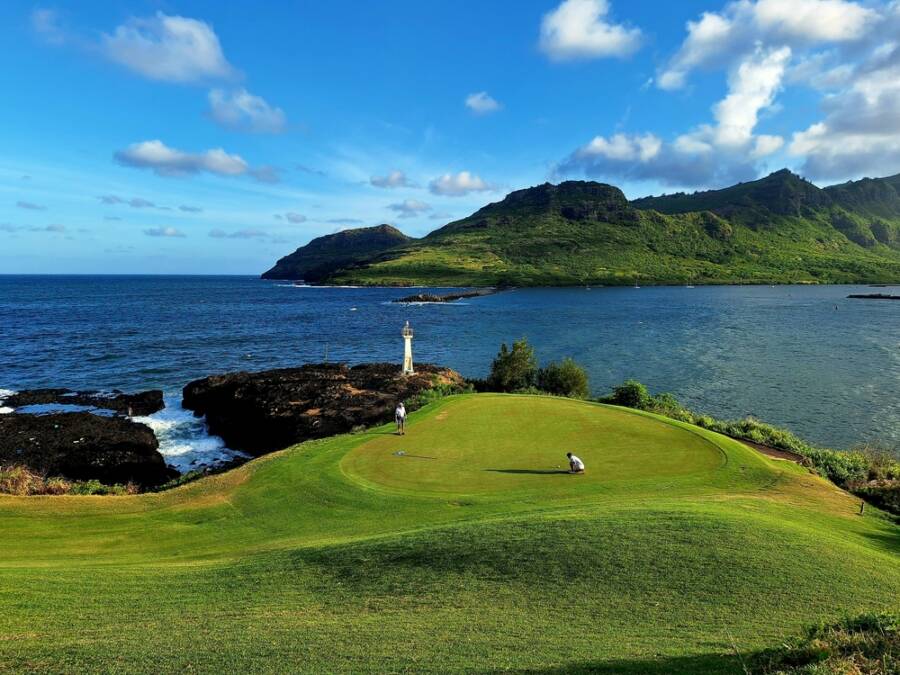
Is a Hawaiian retirement an ideal choice?
With its lush green landscapes, picture-perfect beaches, and laid-back island vibe, it doesn’t surprise us that Hawaii is the ultimate destination for retirees looking to spend their golden years in paradise.
But just like any other big move, retiring in the Aloha State requires careful thinking about the pros and cons. We get that retiring in Hawaii offers a laid-back lifestyle and gorgeous scenery. But there are also a few downsides to consider.
So, you have to weigh your priorities to decide if the island life aligns with your retirement budget and goals. Don’t worry, though.
This is where Easy Seniors Club comes in! We’ve decided to explore the 10 key factors to weigh when considering a Hawaiian retirement so you can make the best decision.

Pros of a Hawaiian retirement
Relaxing Culture
One of the biggest reasons people flock to live out a Hawaiian retirement is its laid-back and relaxing culture. When you step off the plane, you’re automatically engulfed with warm air that instantly soothes you.
It’s also expected for you to receive a lei, the flower necklace, as you take your first few steps into the welcoming atmosphere.
When you go for a drive along Hawaii’s coast, you’ll instantly feel the tension leave you as you take in the warm sun and water, incredible views, and the welcoming smiles of the “Aloha State” locals.
If you want the ultimate relaxing retirement, Hawaii should be one of your top choices. You won’t have a problem feeling welcomed if you retire there, and the peaceful everyday life will be something to relish.
Low Crime Rate
When trying to find a place to retire, it’s important to look at the crime rates in a potential area since this could greatly impact the peace and comfort of your daily life.
Another favorable feature of a Hawaiian retirement is that the crime rates are fairly low. With the national average at 3.7 crimes per 1000 people, Hawaii comes in at 2.5. Since its crime rate is below the national average, you won’t have to worry too much about your safety.
Cultural Attractions
If you want to embrace Hawaii’s special culture, there are many opportunities all around. These include museums, shows, luau’s, cultural centers, and many more.
Since each island has different cultural interests, you won’t ever run out of things to see and do in your Hawaiian retirement.
Beautiful beaches
Hawaii has some of the world’s most stunning beaches, making it a fantastic retirement place. Many are even surrounded by lava formations, giving them a distinctive touch. The sand on the beaches can be in various colors, including white, golden brown, black, or red.
The beaches are positively magnificent, and the water is another distinctive feature. Most beaches have blue-green crystal clear water. So, if you decide to go for a kayak, you’ll most likely be able to see right down to the bottom.
Another huge draw? You might even catch sight of some dolphins or colorful fish! Hawaii has more than 100 beaches to choose from, so whether you’re looking for a busy public beach or a quiet, remote beach, you can find one to your taste.
The food scene
Hawaii has many different types of cuisines, including Asian, Mexican, Italian, and many more. But when you do decide to eat out during your Hawaiian retirement, you absolutely MUST try the local cuisine.
The Aloha State also has fresh fruit and seafood that will leave your mouth watering! There are also numerous fresh-squeezed juices to enjoy in the mornings.
Just remember that even though Hawaii has many fantastic restaurant options, you’ll probably only be dining out every couple of weeks, depending on your budget, because it can get rather expensive.

You can choose from lots of activities
Another huge bonus of a Hawaiian retirement is that you’ll never be bored. There are so many things to see and do, you’re sure to find one that is ideal for you! Here are just a few examples:
-Golfing: Whether you’re a beginner or expert, you can find the ideal golf course for you. This state has some of the best golf courses around, with stunning views and vivid green courses.
-Windsurfing: Even though this is more of an extreme sport, you can still enjoy this activity by taking some windsurfing lessons. There are numerous beaches for this activity, so it’ll be easy to find a close location.
-Paddle Boarding: Many shops on the island offer paddleboard rentals and lessons. It’s a relatively easy activity to get the hang of, and the views are outstanding. It’s important to note that you should consult an expert on the ocean’s tides and the safest areas to paddleboard.
-Whale Watching: If you’re looking for a more relaxing activity, you’ll love whale watching. There are many tours you can choose from, and it’ll be an experience you won’t forget! You can even get a membership if you want.

Cons of a Hawaiian retirement
Natural disasters
Hawaii is prone to all kinds of natural disasters, which can be a huge concern for retirees. Even though the state has a pretty strong disaster preparedness system, the potential for extreme weather occurrences shouldn’t be overlooked.
It’s important to be aware of the threats and take necessary steps to protect yourself and your home. This might include creating an emergency plan, having a comprehensive insurance policy, and staying informed about evacuation procedures and weather updates.
High Cost of Living
A major downside of a Hawaiian retirement is the high cost of living. The Aloha State is one of the most expensive places to live in the entire United States. It’s 33% higher than the national average.
So if you decide to retire in Hawaii, you may have to rent rather than buying since property can be expensive.
Limited healthcare options
Another potential drawback of a Hawaiian retirement is the limited healthcare options.
Even though there are many quality healthcare facilities in the state, the small population and isolated location can result in fewer specialized medical services compared to bigger cities on the mainland.
This might require retirees to travel to a different state for specific medical procedures or treatments, which can be inconvenient and expensive.
So researching the healthcare options available in Hawaii and considering your healthcare needs before deciding to move there is essential.

Distance and isolation from mainland
Speaking of isolation, a Hawaiian retirement means being far away from your family and friends on the mainland. The isolation and distance can make it difficult to visit loved ones or even have them visit you.
Furthermore, the time difference can make communication tough. It’s essential to consider how important proximity to your support network is to you and how you’ll maintain relationships if you choose to retire in this state.
Technology like social media and Facetime can be a big help in bridging the gap, but it might not be the same as being physically close to your loved ones. Amazon has a fantastic Fire HD 8 tablet you might like!
So what do you think? After reading this would YOU consider a Hawaiian retirement? Feel free to share your thoughts with us in the comments below.
But don’t leave yet! If you liked this article, we also highly recommend reading: 9 Cleanest Cities for Retirees to Live in the US










